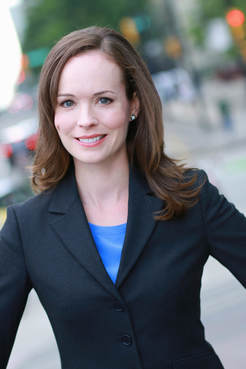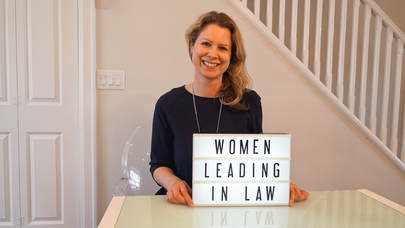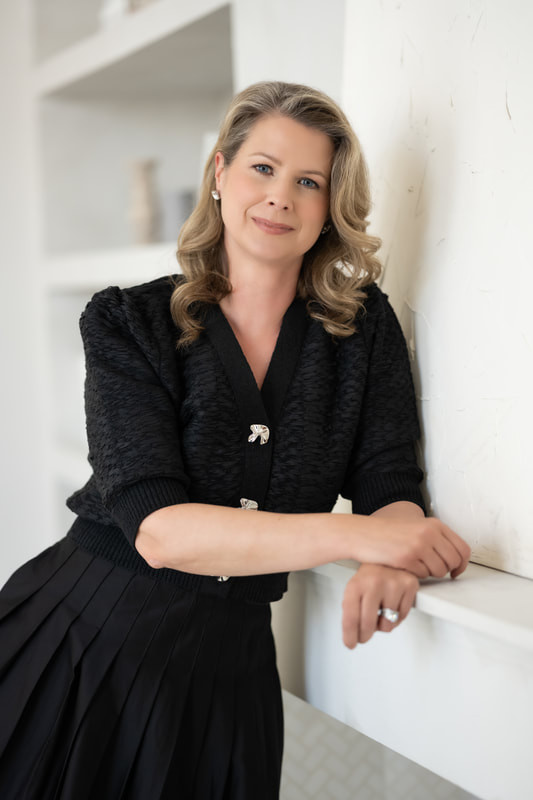 The next lawyer featured in this series is another great example of someone who is using her legal degree in a new and exciting way outside of the traditional practice of law. Shannon Salter is the Chair of the groundbreaking Civil Resolution Tribunal in British Columbia, an online dispute resolution forum accessible to the public for small disputes. It is truly addressing the significant access to justice problem we face in this country. Read on not only to learn more about this fantastic initiative, but also about Shannon's wonderful advice to new lawyers and her three "calls to action" for women in law: 1. Tell me a little about your practice or business. I’m the Chair of an access to justice initiative called the Civil Resolution Tribunal (CRT). It’s the first online tribunal in Canada, which helps people resolve everyday small claims and condominium disputes, wherever, whenever it works for them. We give people free legal information and tools, and support them to reach an agreement through negotiation and mediation. Where people can’t agree, tribunal members make a binding decision, which is enforceable as a court order. The whole process is simple, using plain language, and can be done on a smartphone from your couch. Our goal is to transform the justice system by bringing it to the public and building it around their needs. The CRT is in a period of intense growth. This month the provincial government announced that the tribunal’s jurisdiction will expand to include a significant number of motor vehicle personal injury disputes beginning next April. 2. Why did you go to law school? Like many of us, I went to law school because I thought it was a meaningful way to help people protect their rights. In practice, and particularly through pro bono work, I realized that legal rights are meaningless unless there are accessible ways to enforce them. That’s why I’ve committed my career to finding ways to transform and reorient the civil justice system to meet the needs of the people to whom it belongs. 3. How did you get to where you are today? Design? Chance? Both? I think a little bit of both, with the help of a very supportive spouse and a healthy dose of luck as well. I started my career in civil litigation, doing a lot of pro bono work, before undertaking an LLM at the University of Toronto in 2010. When I returned to Vancouver, with a baby in tow, I decided to focus on administrative law and quasi-judicial work and was appointed Vice Chair of the Workers’ Compensation Appeal Tribunal. I think all of these experiences, combined with teaching administrative law and legal ethics at Allard, provided a diverse mix of experience, perspectives, and skills which were very helpful in building the first online tribunal in Canada (and possibly the world!). I obviously had no idea I would be doing this when I was in law school, but being part of the CRT is my dream job and I pinch myself every day that I get to work with wonderful people on issues I care about deeply. I’m very lucky. 4. What is your most significant achievement? What are you proud of? I am very proud of the Civil Resolution Tribunal, as you can probably tell. Behind this tribunal is an incredibly committed, diverse, thoughtful, and creative team that I’m grateful to work with every day. The tribunal is the first of its kind in part due to the use of technology, but I’m most proud of our non-technology innovations, which mostly have to do with creating a culture of inclusivity, learning, and continuous improvement. We are pioneering a fundamentally different model for the justice system. One that focusses on empowering people to be active participants in the process, and supports them to resolve problems collaboratively. One that recognizes that people have a context, and strives to accommodate their needs in order to treat them with dignity and respect throughout the process. The CRT is showing that there is a better way, and it’s so exciting to see our model being expanded in British Columbia and also adopted in other jurisdictions, including in the United Kingdom, the United States, and Australia. 5. What are some key challenges and, importantly, opportunities for women in law? Women in the legal profession face many barriers, from all different directions, and in my view the situation hasn’t improved much in decades, despite the work of some incredible pioneering women, and despite many reports detailing the obstacles women face. Women in law deal with harassment and discrimination on a daily basis. We disproportionately bear the burden of balancing family and work obligations, and we are set up to fail on both fronts. We are regularly re-explained, undermined, talked over, underestimated, and overanalyzed. And, of course, all of these issues disproportionately impact women of colour, Indigenous women, LGBTQ folk, and women with disabilities, among others. That said, I think we have some tremendous opportunities in this moment. The #metoo movement has brought an increased awareness of some of these issues, and a willingness to confront them. I think there’s a real opportunity for women to shift power in the legal profession towards equality and inclusivity. I recently talked about three ways we can do this in a keynote at the Women in the Law dinner. It’s posted here, but basically my calls to action are these: 1) Apply for everything. Don’t wait until you think you’re more senior, more ready, more experienced, or more qualified. Women underestimate their own abilities and qualifications and I see this every time I assess a candidate pool or do an interview panel. 2) Invite other women to apply for everything. Often women don’t see themselves in positions of authority, and are less likely to apply for these roles than men. An invitation from another woman can be the vote of confidence and nudge we need to throw our hat in the ring. 3) Be the persistent, unapologetic voice of accountability. In every organization I’m a part of, whether it’s the CRT or a board position, I raise equality and diversity issues in a matter-of-fact, helpful way every single time until they have been addressed. There’s usually not all that much resistance to thinking about these issues, it’s just that no one has ever put them on the agenda. Sometimes the inequalities women face seem so big and insurmountable that people don’t know where to start, or even that they might, unwittingly, be part of the problem. So use your spot at the table to make inequality visible, and make it impossible to ignore. 6. What advice would you give a woman starting her legal career? Apply for everything (see above)! But also, identify women in law you admire and invite them for coffee. This is another thing that men seem to have less trouble doing than women. We think we’re bothering people, but most of the time, people are flattered that you admire their work and are happy to share their experience. I know I am, and I almost always make time to meet with young lawyers. Ask how they sought out opportunities, what they wish they had known when they were just starting out, what they like and dislike about their work, and how they manage their non-work obligations. Share the kind of work you’re interested in and ask them to keep you in mind if they see related opportunities come up. This is particularly important if you are choosing a non-traditional career path. Follow up with a thank you and keep in touch. My theory is that most mentors aren’t volunteers; instead, they are adopted by the mentee. I learned the value of mentorship later than I should have, but still, most of the fantastic lessons and opportunities in my career have come through some truly incredible women mentors, and I will always be grateful to them. --------------------------------------------------------------------------------------------------------------------- Thank you Shannon for taking the time to answer these questions and for your wonderful insights and advice! ICYMI: Previous posts profiled Bindu Cudjoe, Elliot Spears, Jessica Prince, Anu K. Sandhu, Claire Hatcher, Esi Codjoe, Kate Dewhirst, Jennifer Taylor, Rebecca Durcan, Atrisha Lewis, Vandana Sood, Kathryn Manning, Kim Hawkins, Kyla Lee, and Eva Chan. Sign up to have these profiles sent directly to your email address and stay tuned for the next post soon! The "Women Leading in Law" series focuses on good news stories and highlights amazing women succeeding in the legal profession. Each post includes the profiled lawyer's answers to six questions. Prepare to be inspired! The series will continue until December 2018. If you have suggestions of women to be profiled please reach out.
0 Comments
Your comment will be posted after it is approved.
Leave a Reply. |
Erin C. Cowling is a former freelance lawyer, entrepreneur, business and career consultant, speaker, writer and CEO and Founder of Flex Legal Network Inc., a network of freelance lawyers.
Categories
All
Archives
December 2022
|
|
(C) 2014-2024 Cowling Legal. All rights reserved.
|
Please note I am not currently practicing law.
Information on this website does not constitute legal advice and is for informational purposes only. Accessing or using this website does not create a solicitor-client relationship. See website Terms of Use/Privacy Policy. info@cowlinglegal.com
3080 Yonge Street, Suite 6060 Toronto,ON M4N 3N1 (appointment only) |







 RSS Feed
RSS Feed
